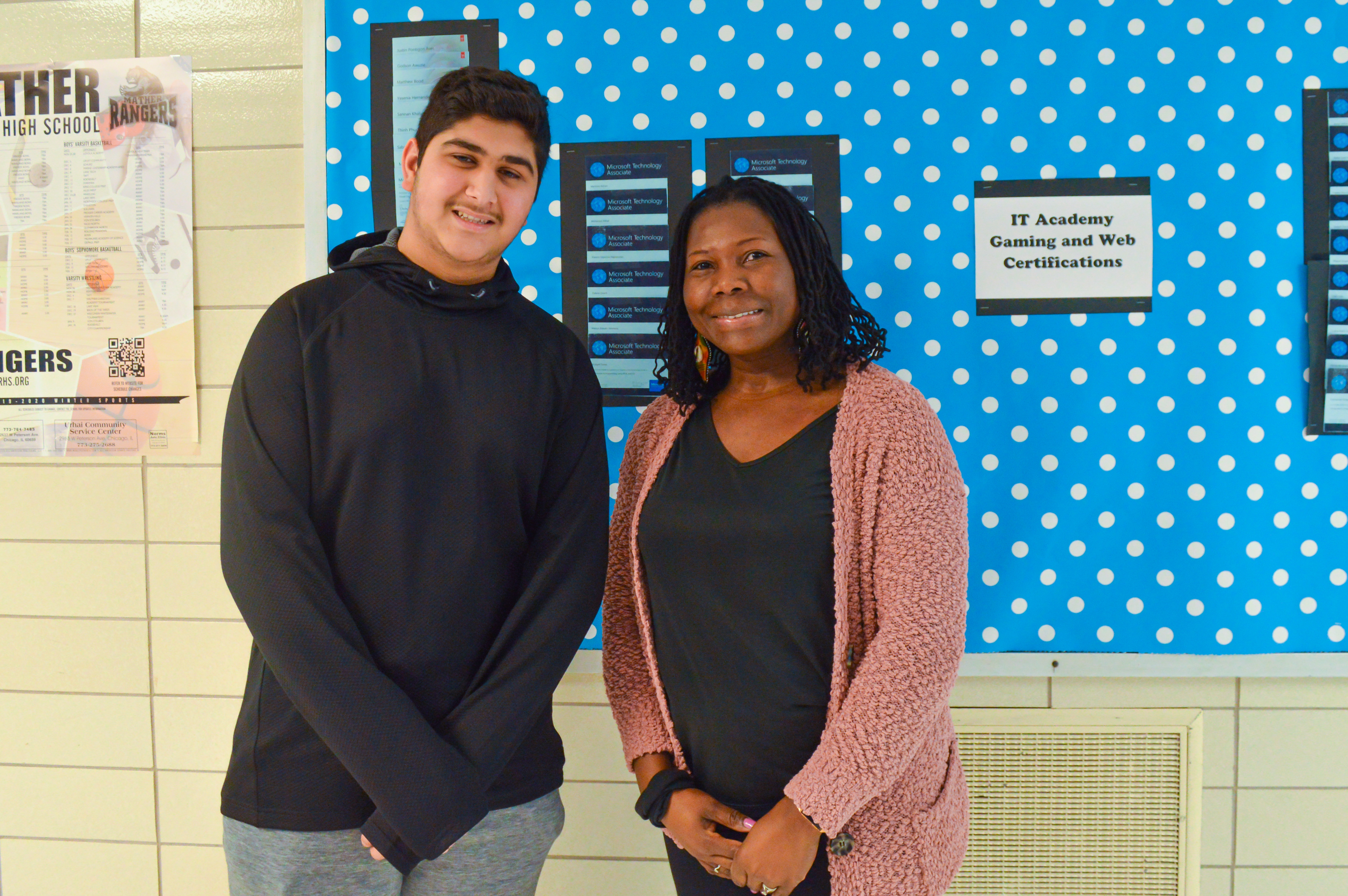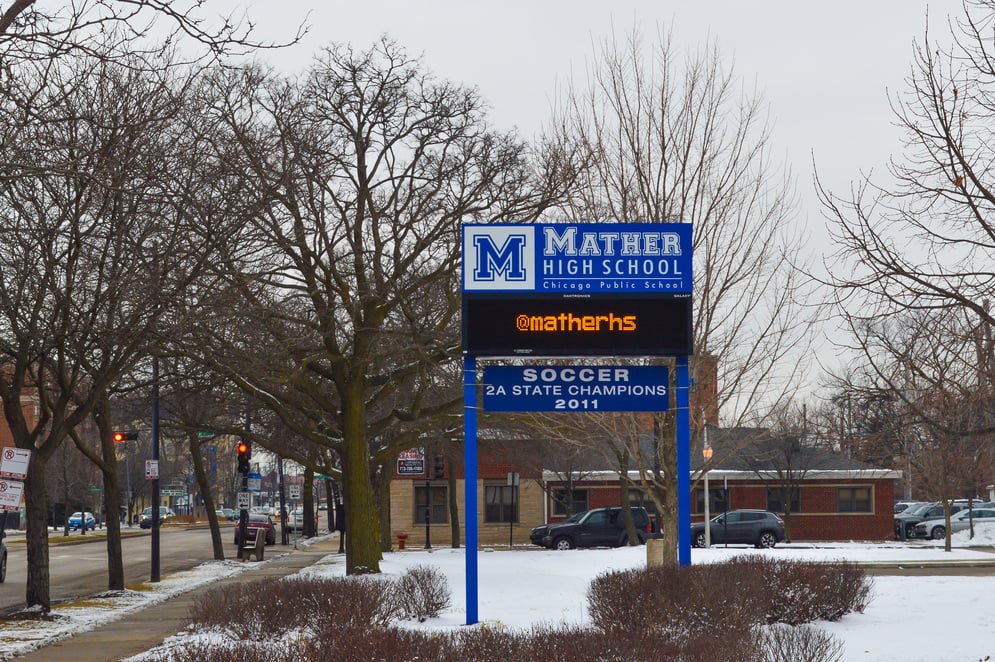Mohammad A., a senior at Stephen T. Mather High School on Chicago’s Northwest Side, is about to graduate with six computer science classes under his belt. Although he entered high school unsure of which classes he wanted to pursue, his passion for computer science developed after he discovered the versatility of the core skills he was learning.
“One of the biggest parts of computer science is problem solving. My teachers have taught me the processes behind using computers as tools in a variety of situations,” he said. “I’ve also learned about troubleshooting. When problems arise, I always try to see what’s wrong and play around to try to fix it, which is something I didn’t do in my first computer science class.”
This year, Mohammad is taking AP Computer Science Principles and Gaming II. In his AP Computer Science Principles class, he spends much of his time researching different technological innovations and learning about their benefits and real-world applications. Gaming II is the second part of a two-course sequence that he started as a junior. After learning the principles of gaming by playing different board games (and even creating his own—a hybrid between checkers and chess), he is now learning about the different languages used when creating online video games, including Java, HTML, and, his personal favorite, Python.
Now that his time at Mather is wrapping up, Mohammad is excited to experience how the skills he’s learned in high school will fit into today’s technology-driven society.
“The future is technology, so it’s important to be comfortable with it. At the same time, I think the future of technology is unpredictable,” he said. “I want to major in computer science and become a successful software engineer and create something amazing.”

Mohammad first delved into the world of computer science as a freshman under the guidance of veteran teacher Ms. Tameka Lewis-Morris, who has taught at Mather for the past 19 years. Now that a year of computer science is a CPS graduation requirement, Ms. Lewis-Morris focuses on making the often-misunderstood topic accessible to all students in her Exploring Computer Science class. She says the class focuses on three pillars—inquiry, equity, and content—to create a collaborative classroom environment and ensure students understand the transferability of what they are learning.
“Initially, it’s important for me to dispel myths about what computer science means because a lot of my students come in not even knowing what it really is,” she said. “Making computer science a graduation requirement was a fantastic idea because my students are learning key problem-solving, collaboration, and presentation skills that will help them as they go out into the real world.”
The course’s problem-solving unit centers on a community-based group project where students identify a relevant issue and then use technology to research the problem and create a presentation to educate their classmates. In the past, students have chosen everything from gun violence to bullying and garbage collection. Projects like this one encourage students to develop confidence in their fundamental skills because they are able to tie in an issue they are passionate about.
Ms. Lewis-Morris says equity in her classroom means making sure every student feels like they belong.
“I always make sure to give lots of compliments and a lot of encouragement, especially to my female students, when I see that they are doing well,” she said. “I also try to give them as many choices as possible with their assignments to allow them to use their knowledge to design something of their own, which makes them love seeing their work displayed even more.”
Ms. Lewis-Morris says the diversity of her classes at Mather, one of the city’s most diverse high schools, has kept her coming back for so many years, and she feels the most rewarding parts of teaching a challenging discipline are the transformations she sees in her classroom, sometimes over the course of a single school year.
“Sometimes I get tough students, but by the end of the year I can tell that they’ve learned something because they’re involved and engaged and come into my class with a smile on their face,” she said.
With the help of teachers like Ms. Lewis-Morris, CPS students like Mohammad are well on their way toward making their mark in the world of technology. He might not know exactly what his mark will be yet, but the beauty of computer science will be his inspiration.

Related Stories
08 April 2025
It Takes a Village to Build a School Leader
AP Nuñez builds camaraderie with assistant principals across the District to help guide her through her first year as a school leader.
07 April 2025
AP = “All Purpose”: Creating Community Among School Leaders
AP Alvarez and AP Krzysztofiak are focused on creating community among other school leaders.
04 April 2025
From CPS Student, to Counselor, to School Leader: Get to Know AP Terry Batey
For AP Batey, seeing students' growth is the most rewarding part of his job.
04 April 2025
Changing the World through Technology: Take Five with Nicholas Anaya, Golden Apple Finalist
According to Mr. Anaya, one of the best things about Lindblom is the school’s robust Career and Technical Education program.





